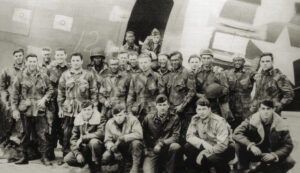The Man Who Captured Washington: Major General Robert Ross and the War of 1812, by John McCavitt and Christopher T. George, University of Oklahoma Press, Norman, 2016, $29.95
What Americans know as the War of 1812 and the British simply call the American War had other names in its time. Among President James Madison’s detractors, it was “Mr. Madison’s War,” while his supporters called it the “Second War of Independence.” For too many present-day Americans it may as well be called the “Forgotten War.” But this sideshow to the Napoleonic wars had its share of dramatic crises, not least of which was the only time the U.S. capital fell into enemy hands. The commander of the small British expeditionary force that briefly occupied Washington after defeating the U.S. Army at Bladensburg, Md., on Aug. 24, 1814, was Irish-born Maj. Gen. Robert Ross.
In Vol. 53 of the University of Oklahoma’s Campaigns and Commanders series, authors McCavitt and George examine the life of this career officer who had performed admirably in service against Napoléon Bonaparte before his reassignment across the Atlantic. Despite his notoriety in American history for burning such notable buildings as the Capitol and the White House, Ross reportedly treated Washington’s citizens with humanitarian regard. Nonetheless, the authors lament his failure to spare the Library of Congress—actually housed in the Capitol at the time—suggesting he could have ordered its 3,000 books transferred elsewhere.
According to the authors, the primary reason for Washington’s fall was the U.S. Army’s complete underestimation of the danger the enemy posed. Secretary of War John Armstrong said the following of the British state of readiness: “Have they artillery? No. Have they cavalry? No. Then don’t tell an old soldier that any regular army will or can come.” One challenge that took the British by surprise was the terrible summer heat the soldiers endured during their rapid march to Bladensburg (similar to the heat that bedeviled Confederates troops as they approached Washington in July 1864).
The capture of Washington put a strain on both the U.S. government and economy. Congress even discussed the possibility of choosing another city as capital. Had Ross heeded his orders and burned Washington to the ground, its days might well have been numbered—and had Ross, marching with equal determination on Baltimore, not fallen mortally wounded just before the September 12 Battle of North Point, the same might have been said of the United States.
An impressive granite obelisk dedicated to Ross’ memory stands in his native village of Rostrevor, Ireland. This biography will also preserve the memory of the dynamic if largely forgotten general of a forgotten war.
—Mike Oppenheim





